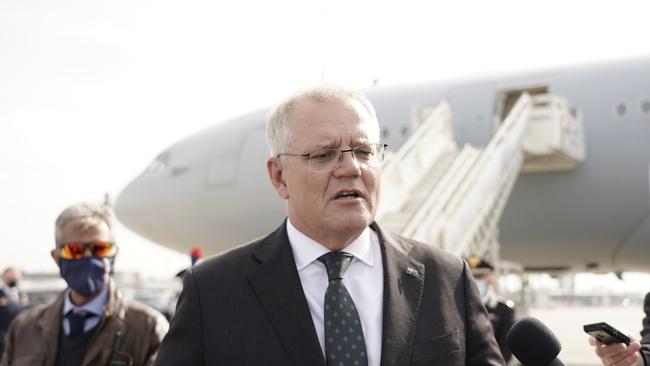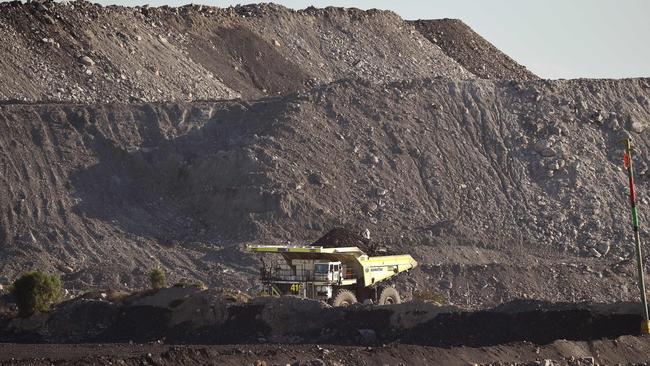Peta Credlin: Net zero is going Australia poorer and weaker
The government’s position is Australia can achieve net zero with no new taxes, no new spending, and no new mandates. So, where does the money come from, Peta Credlin asks.
Opinion
Don't miss out on the headlines from Opinion. Followed categories will be added to My News.
If you think you understand the climate change issue, I challenge you to watch the circus of COP26 play out in Glasgow over the next few days, because saving the planet is the last thing they’ll achieve.
Don’t let the activists tell you otherwise; Australians are outstanding custodians of the spectacular natural environment we’re blessed to call our home. And while we support action on climate change, it’s far more a global issue than a local one, given we’re responsible for only about 1 per cent of the world’s emissions.
If the big emitters keep refusing to sit at the table, you’ve got to question why we would sign up to turn our economy (and lives) upside down for no environmental gain?
Energy emissions are just the start; the British government chief scientific adviser Sir Patrick Vallance’s insistence last week that behavioural change was needed to eat less meat and to fly less is a sign of what’s in store for all of us riding on the net zero train.
For now, Scott Morrison and Barnaby Joyce have rejected the demands of Boris Johnson and Joe Biden that we cut methane emissions by 30 per cent and eliminate coal by 2030.

But on their past form, what’s rejected today will be accepted tomorrow, when the political pressure mounts – even though coal is currently 70 per cent of eastern Australia’s power supply and much of our methane emissions are the unavoidable consequence of our beef and dairy herds.
Actions have already come before Australian courts seeking to block resource developments on the grounds that they conflict with our international obligations to reduce emissions. These are bound to increase and are likely to be taken seriously by activist judges.
This is what happens when governments sign up for international commitments thinking they’ll have no domestic consequences (or at least telling voters that lie).
Right now, the government’s position is that Australia can achieve net zero with no new taxes, no new spending, and no new mandates.
Yet it’s all predicated on technologies turning up that haven’t even been invented yet, and billion-dollar subsidies from taxpayers at the same time our coal and agricultural export wealth is decimated. So, where does the money come from?
Maybe solar panels in the desert really can power the green hydrogen to produce the 24/7 power that can be sent north into Asia via undersea cables, and thus replace the $100bn a year of Australian coal and gas exports that made us prosperous. But that would be easier to believe if the hydrogen spruikers weren’t also demanding a further $20bn “investment” (they shun calling it a subsidy) from taxpayers.

Maybe net zero can be achieved here without the $295 a tonne carbon price the British Treasury thinks it will need, and without the carbon pricing arrangements the International Monetary Fund is calling for, but I doubt it, especially as we’re still too gutless to tackle nuclear power.
As a comparison, Julia Gillard’s carbon price was $23 a tonne, and the lack of detailed modelling from the Morrison government makes this all look like a magic pudding designed to get the government through the next election by trying to be all things to everyone: climate warriors in the city seats, job protectors in the regions.
Then there’s the China problem. President Xi Jinping isn’t even going to Glasgow even though China is the world’s biggest emitter by far (about 30 per cent) and has no intention of doing anything that hinders its development as a superpower.
India’s Narendra Modi is now going but will offer no new emissions commitments because his (understandable) focus is getting power to the 100 million Indians still without it. Indeed, the whole point of Glasgow is to make the Western world bear the burden of decarbonising the planet AND to atone for past climate sins by providing developing countries with $100bn a year in climate aid.
It’s an equalisation agenda workers always rejected when it was presented as socialism, but which Western intellectuals have embraced in the guise of climate policy.
Net zero is going to make countries like ours poorer and weaker because the only way to get there is by taxes, subsidies and changes to the way we live that China won’t copy.
Sadly, we are bereft of political leaders of conviction prepared to tell this inconvenient truth.
Watch Peta Credlin on Sky News, weeknights at 6pm





